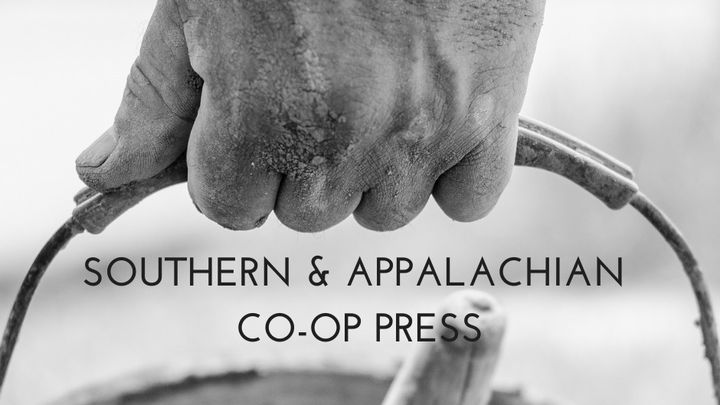
Southern & Appalachian Co-Op Press
In the last few weeks, more than half a dozen media outlets have shut down, making a difficult media industry even tougher for writers, freelancers and photographers.
We need a different kind of media outlet, one that isn't driven by profit or capitalist editorial policies. We need a worker-owned co-op publication that replenishes communities and offers better options for writers.
Enter: The Southern & Appalachian Co-Op Press, offering working class news by working class writers for the South & Appalachia.
In the last few years I've become increasingly devoted to my home region and I want to launch a publication that bolsters journalists' careers and accurately covers the labor, politics and news that affect working class Southerners and Appalachians. I also strongly believe that we need more co-op publications that provide stable income and share profits with writers, not puffed-up CEO salaries.
For example, did you know that as of March 2020, Scalawag reported there are only two doctors in Kentucky who can diagnose black lung for coal miners? We are in need of hard-hitting coverage that actually changes regional struggles.
In 2018, Fast Company reported thatmore companies are becoming co-ops, and in 2016, The Nation reported that cooperatively owned companies are more productive .
The Southern & Appalachian Co-Op Press marries my passion for covering the South & Appalachia with the ethical, anti-capitalist structure of a co-op. But it's not just about me. I look forward to bringing on diverse staff and providing additional income to writers as we make choices together democratically and grow into a powerful regional voice.
FINANCIAL DETAILS & BUDGET
I have drafted a budget based on six months of operating costs, enough to get the press going. The first $300 will be used to join the Nashville Food Co-Op and Bluegrass Pride. This allows us advertising space in a local co-op's newsletter and builds relationships. The next $1,000 will be used for legal consultation to ensure the press is incorporated and legally run, as well as set up bank accounts and get consultation for our bylaws and internal structure.
When we hit $7,500 I will hire the first writer, because I have budgeted $1,000/month per writer for six months. This will allow me to offer the writer stability in income.
After that, we'll begin building the website, hiring more writers, producing content and marketing ahead of launch in Fall/Winter 2021. Depending on how quickly or slowly money comes in, we'll adjust our timetables accordingly.
I will also be donating $300 myself, to prove I believe in the project and get skin in the game. I will seek large donations from philanthropic sponsors.
I plan to implement a member system that allows readers to contribute to revenue; this means that while some early adopters may make contributions here you can expect an ask to become a member down the line unless we discuss other sponsorship opportunities. This is why I'll be so grateful for continued support.
Last but not least, I expect to expand revenue streams to include ads on the accompanying podcast and website. Learn more about the business plan, budget and other details in the announcement stream!
View the business plan draft.
View the draft budget.
ABOUT ME
My name is Abby Lee Hood; I'm a freelance writer based in Lawrenceburg, TN. My writing on hillbillies can be found in the New York Times, and I am currently working on a book about progressive redneck history for the West Virginia University Press. Other bylines in Huffington Post, VICE, Insider, MTV, Tennessee Lookout and the Nashville Scene can be found in my portfolio.
I've run a successful writer's course and maintain a monthly newsletter for writers. In the past I worked as communications director for a large bluegrass nonprofit and have extensive experience in marketing, running celebrity social media campaigns for country singers like Dolly Parton, among others.
I successfully organized for rent relief during COVID and have clocked dozens of volunteer hours in animal shelters, giving pro-bono journalism advice to students, raising money for the homeless, and I strongly believe in mutual aid. I believe my writing, marketing and mutual aid experiences give us a high chance of success.
I am eternally grateful for your contributions and look forward to building a successful publication that covers a region I love in an ethical way readers will feel good about supporting.